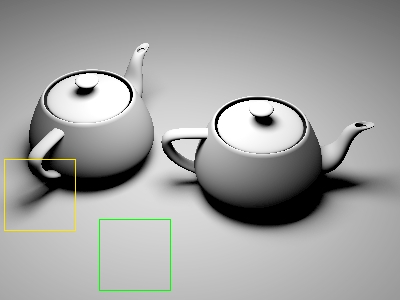

Per Christensen, Andrew Kensler, Charlie Kilpatrick
Abstract:
We introduce three new families of stochastic algorithms to generate
progressive 2D sample point sequences. This opens a general framework that researchers and practitioners may find useful when developing future sample sequences. Our best sequences have the same low sampling error as the best known sequence (a particular
randomization of the Sobol' (0,2) sequence). The sample points are generated using a simple, diagonally alternating strategy that progressively fills in holes in increasingly fine stratifications. The sequences are progressive (hierarchical): any prefix is well distributed, making them suitable for incremental rendering and adaptive sampling. The first sample family is only jittered in 2D; we call it progressive jittered. It is nearly identical to existing sample sequences. The second family is multi-jittered: the samples are stratified in both 1D and 2D; we call it progressive multi-jittered. The third family is stratified in all elementary intervals in base 2, hence we call it progressive multi-jittered (0,2). We compare sampling error and convergence of our sequences with uniform random, best candidates, randomized quasi-random sequences (Halton and Sobol'), Ahmed's ART sequences, and Perrier's LDBN sequences. We test the sequences on function integration and in two settings that are typical for computer graphics: pixel sampling and area light sampling. Within this new framework we present variations that generate visually pleasing samples with blue noise spectra, and well-stratified interleaved multi-class samples; we also suggest possible future variations.
Paper (PDF)
Additional materials: [pmj_slides.pdf], [pmj_suppl.pdf]
Computer Graphics Forum (Proceedings of the Eurographics Symposium on Rendering 2018)

